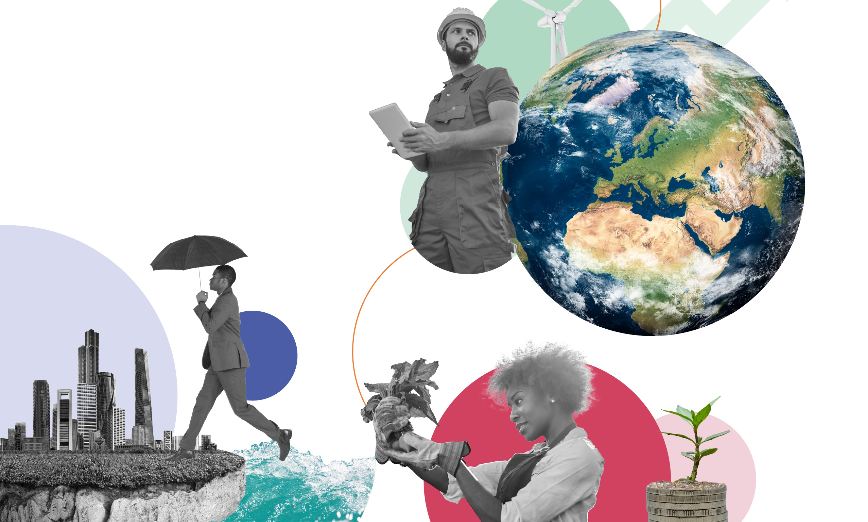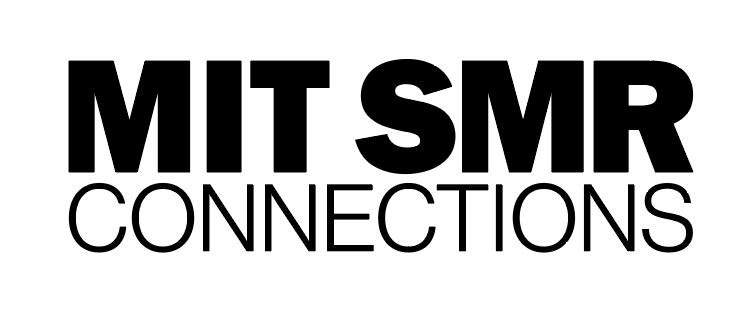An Economist Impact report supported by Webex by Cisco
August 16, 2022
Massive changes to the basic infrastructure and cadence of daily life are well underway. Across areas like global demography; geopolitics and macroeconomics; social services and governance; climate; automation, jobs and education; corporate responsibility and worker power; and connectivity and interaction, the fabric of human life on earth is being reknit. These are all the focus areas of a sister report by Economist Impact on the megatrends for work, collaboration and communication in 2040, and each poses unique opportunities and challenges that society must face together. The collective responses to these changes will shape our future.
This Scenarios Report offers four versions of what the world could look like in 2040. Each represents a path that the world may take over the next 20 years, driven by systematic forces and individual choices. They offer food for thought for executives and policymakers planning for the future, and it is the hope of the research team that they will provoke reflection and action.
Each scenario is built around three principal drivers: global openness or isolationism; climate action or inaction; and increased or decreased worker power and autonomy. Given the fundamental importance of technological change in shaping work, collaboration and communication, all scenarios assume moderate to rapid technological advancement leading to a meaningfully different technological landscape in 2040.
The four scenarios are as follows:
- Corporates in control: in which highly co-ordinated, economically interdependent countries see a consolidation of corporate power along with technology-enabled worker flexibility, but a worsening climate and its ramifications harm the world’s most vulnerable populations.
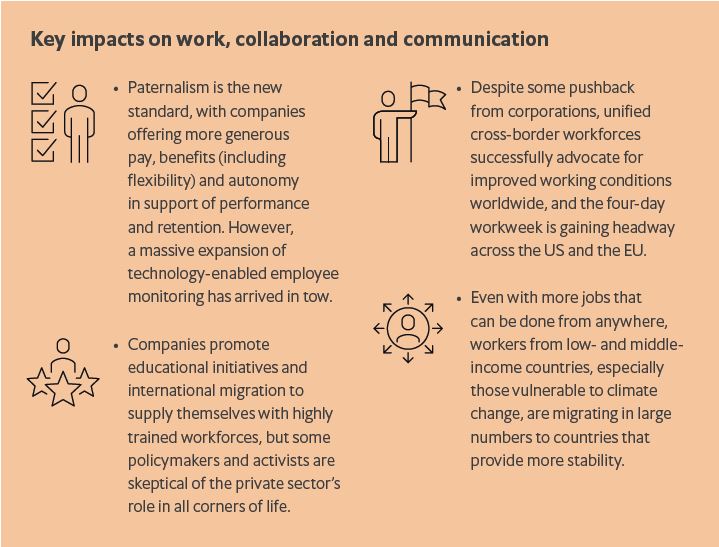
- The green elite: in which global economic and political integration functions in tandem with climate action. Advancements in technology along with extensive global interaction drive corporate models that build green profits for corporations but leave workers in the lurch.
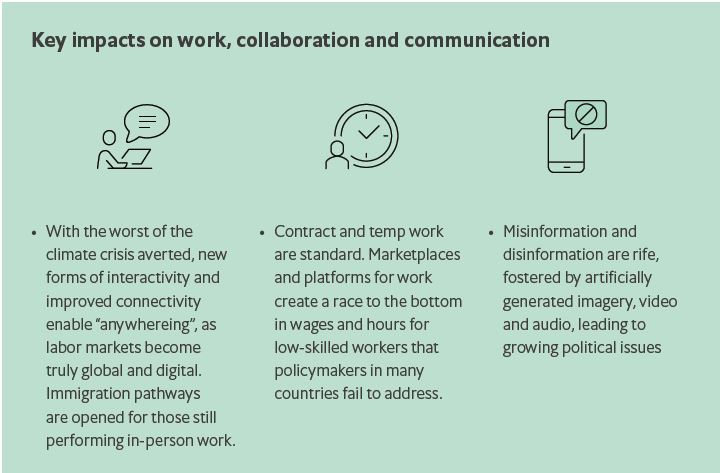
- The social contract, reinvented: in which countries, conscious of their extreme interdependence, band together to radically reimagine the existing economic system as one that benchmarks ecological health alongside traditional profit indicators. Concurrently, a renewed focus on human rights and health leads to powerful and seismic shifts in individual self-determination.
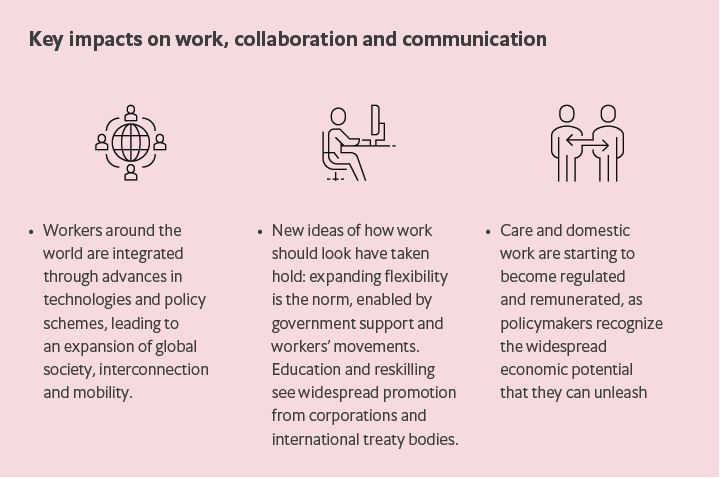
- Islands of unity amid a sea of isolationism: in which countries are increasingly isolated, retreating to self-sufficiency amid a lack of global co-ordination. This self-sufficiency contributes to a lack of traction on climate change mitigation, which fails to mature. In this environment, worker power and autonomy do not develop substantially.
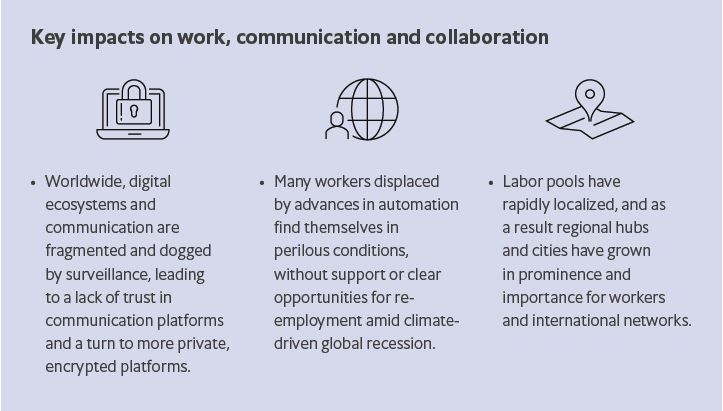
In addition to building four scenarios, Economist Impact fielded a survey of 412 executives during March and April 2022, half from the US and half from Western Europe. This survey examines the future of business through the lens of work, collaboration and communication, focusing on executives’ priorities for their firms’ upcoming decade, their sentiments toward specific visions of 2040, and broad feelings regarding the world to come. The results of this survey are interspersed throughout the four scenarios in the report, linking them back to the present moment and offering additional context and perspective.
Disclaimer: The views and opinions expressed in this blog are those of Webex by Cisco and do not necessarily reflect the view and policies of Economist Impact.
